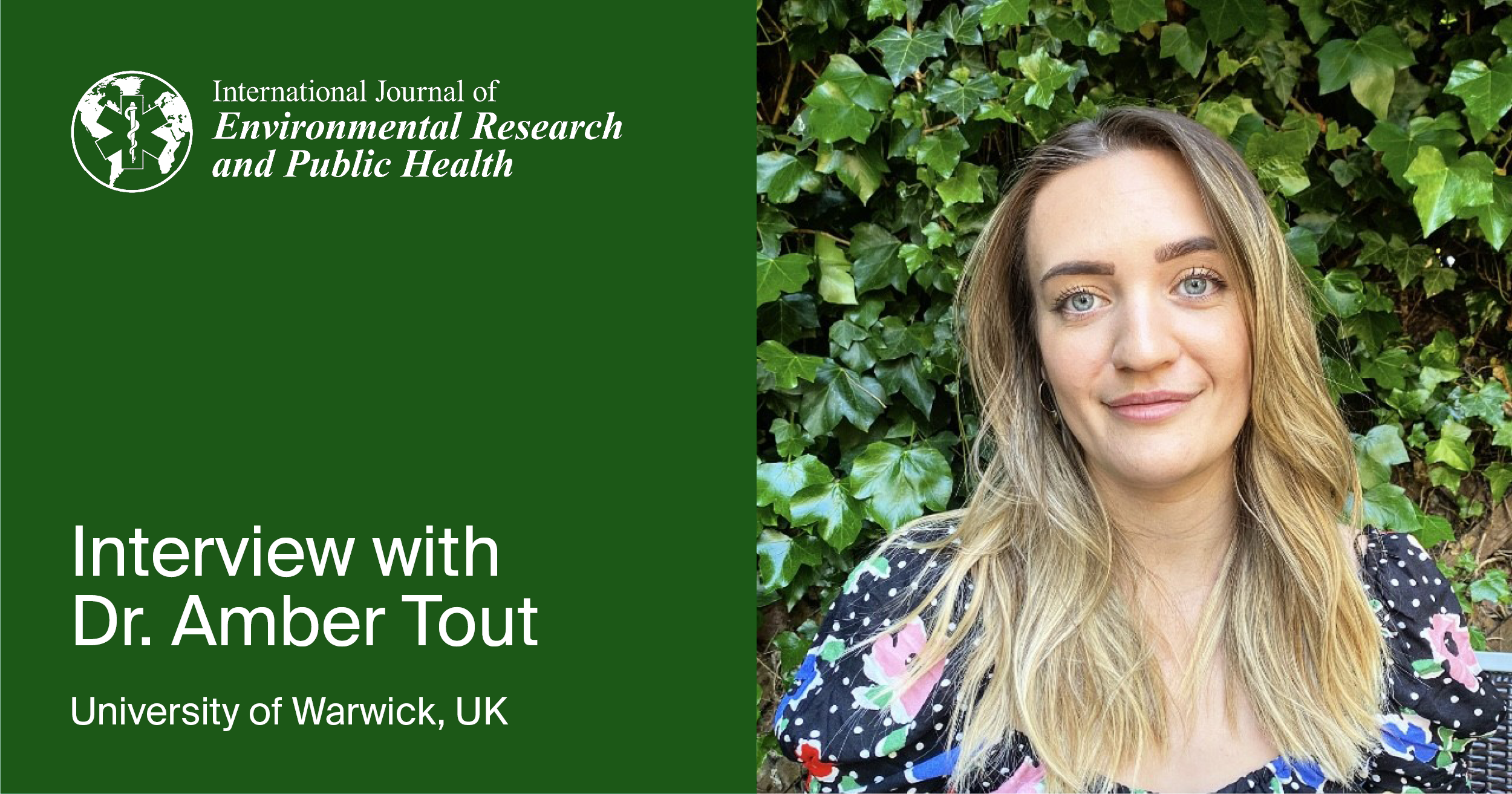
International Journal of Environmental Research and Public Health | An Interview with the Author—Dr. Amber Tout
Name: Dr. Amber Tout
Affiliations: Warwick Applied Health, Warwick Medical School, University of Warwick, Coventry CV4 7AL, UK
Interests: shift-worker sleep; sleep health; positive traits and sleep
“The Co-Development of a Preventative Sleep Management Programme for Shift Workers and Their Employers”
by Amber F. Tout, Nicole K. Y. Tang, Carla T. Toro, Tracey L. Sletten, Shantha M. W. Rajaratnam, Charlotte Kershaw, Caroline Meyer and Talar R. Moukhtarian
Int. J. Environ. Res. Public Health 2025, 22(8), 1178; https://doi.org/10.3390/ijerph22081178
The following is an interview with Dr. Amber Tout:
1. Congratulations on your recent publication! Could you briefly introduce yourself and your current research focus?
I am Dr. Amber Tout, a Postdoctoral Research Fellow at Warwick Medical School, University of Warwick. My research has always centered on sleep and its impact on health and well-being. During my PhD, I focused on student sleep, looking at strengths and positive traits that could promote better sleep rather than only the risk factors. More recently, I have been studying sleep health in shift workers, who are among the most sleep-deprived populations worldwide. Our research team aims to co-develop tailored interventions with employees and employers so that solutions are practical and grounded in real needs.
2. Your research focuses on the sleep health of shift workers, which sounds very relevant to our daily lives. What initially inspired your research interest in this field?
Shift work has become increasingly common in today’s society, with around a quarter of the workforce engaged in it. Beyond healthcare and emergency services, it also includes logistics, transport, and delivery services that support the global demand for fast, around-the-clock services. Unfortunately, this leads to disrupted sleep schedules and long-term health consequences. Despite their vulnerability, shift workers are often excluded from research because their sleep patterns are complex. We wanted to work directly with this group and with employers to develop solutions that work for them.
3. Did you encounter any significant challenges while conducting your research? If so, how did you overcome them?
Yes. Accessing participants was one of the biggest challenges, since many were located in noisy factories or remote sites during unusual hours. We overcame this by developing strong relationships with organizational health leads, who helped us coordinate recruitment and logistics. We also conducted workshops at night or before shifts to make participation easier. Another challenge was balancing input from employees and employers, which we managed by speaking to them separately to ensure open and honest contributions.
Additionally, I was struck by the extreme measures many workers take to cope with sleep problems. Some rely heavily on caffeine or turn to unregulated supplements and internet “sleep hacks.” While these are understandable responses, they highlight the urgent need for structured, evidence-based workplace interventions so employees do not have to resort to unsafe practices.
4. What are the most pressing research questions you aim to explore next?
The main priority is testing whether our intervention actually works in practice. We need to know whether employees find it useful, whether employers can implement it, and whether it improves both health outcomes and workplace measures such as absenteeism and accidents. On a broader scale, I believe stronger government policies are needed to make shift work more compatible with healthy sleep.
5. During the process of writing and submitting your paper, what experiences can you share? (For example, how to address reviewers’ comments.)
I found the process efficient and well-structured. The template was very useful for keeping the manuscript organized, and the review process was constructive. I think it is important for authors, especially early-career researchers, to approach reviewer comments with gratitude and openness rather than defensiveness. Taking time to reflect before responding helps ensure that feedback is integrated positively.
6. What appealed to you about the journal that made you want to submit your paper? How was your experience submitting to IJERPH?
The journal’s aims and scope were an excellent fit. Shift work is a major public health issue, and our intervention also had digital components that aligned perfectly with the theme of the Special Issue. Also, when I am evaluating a potential journal, word count is increasingly important, especially for large methodological and results papers. Flexibility in formatting and the option to submit in a template are also very helpful, as they reduce unnecessary workload when revising or resubmitting.
We sincerely thank Dr. Amber Tout for taking the time to speak with us. Her insightful perspectives on sleep health, particularly among shift workers, have been truly enlightening. We wish her continued success and impact in the field and look forward to seeing her future contributions shine even brighter.